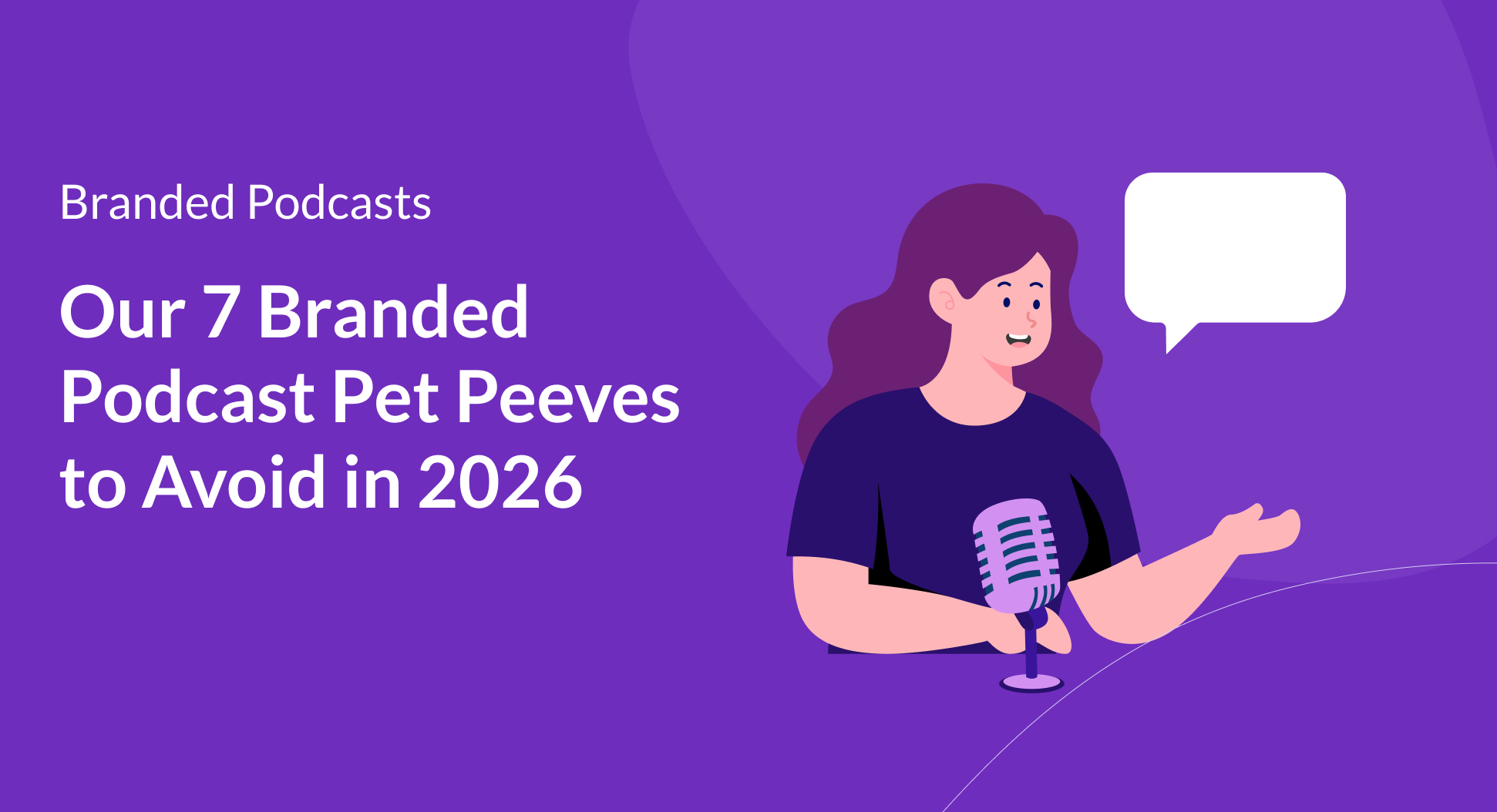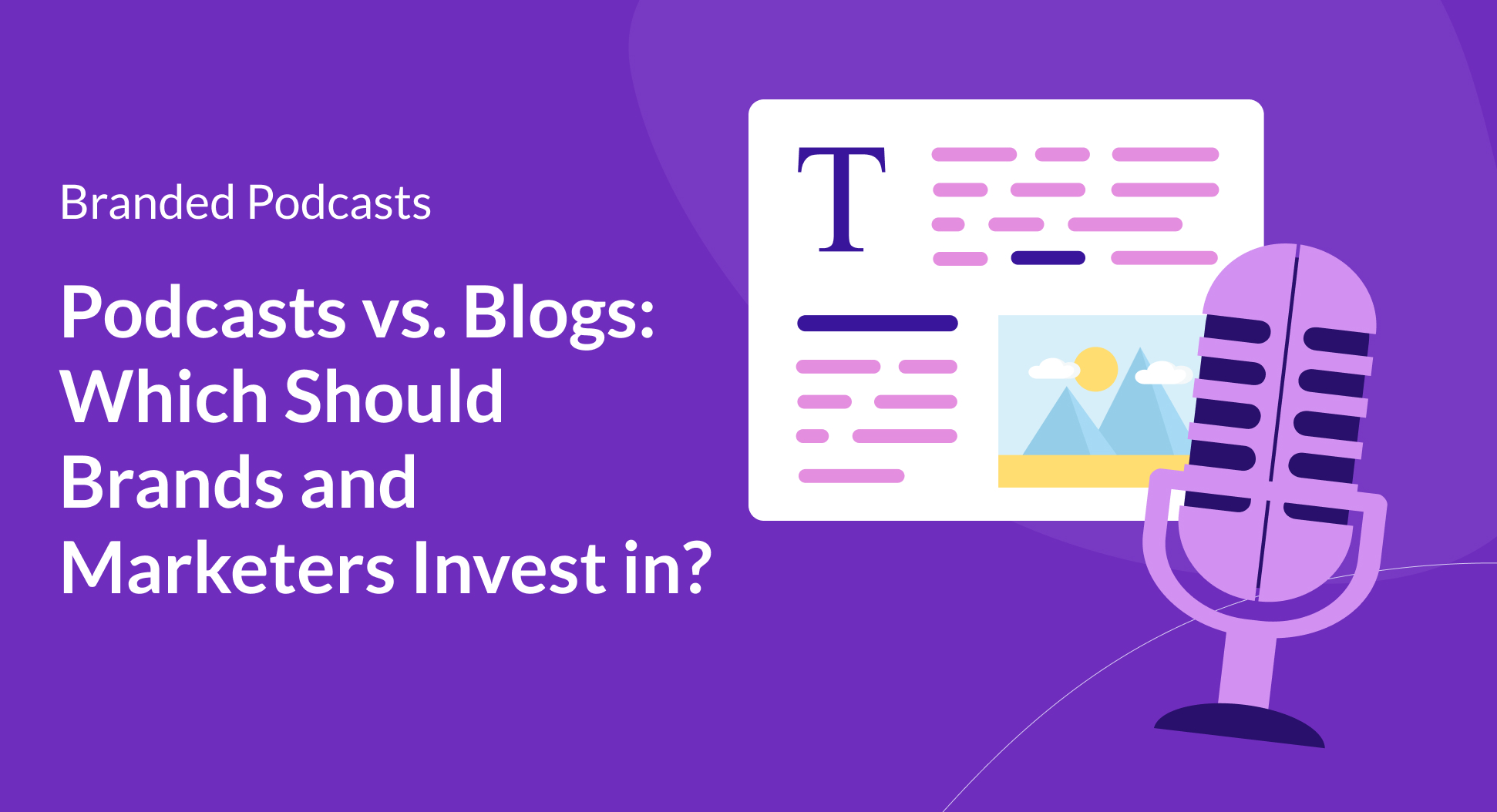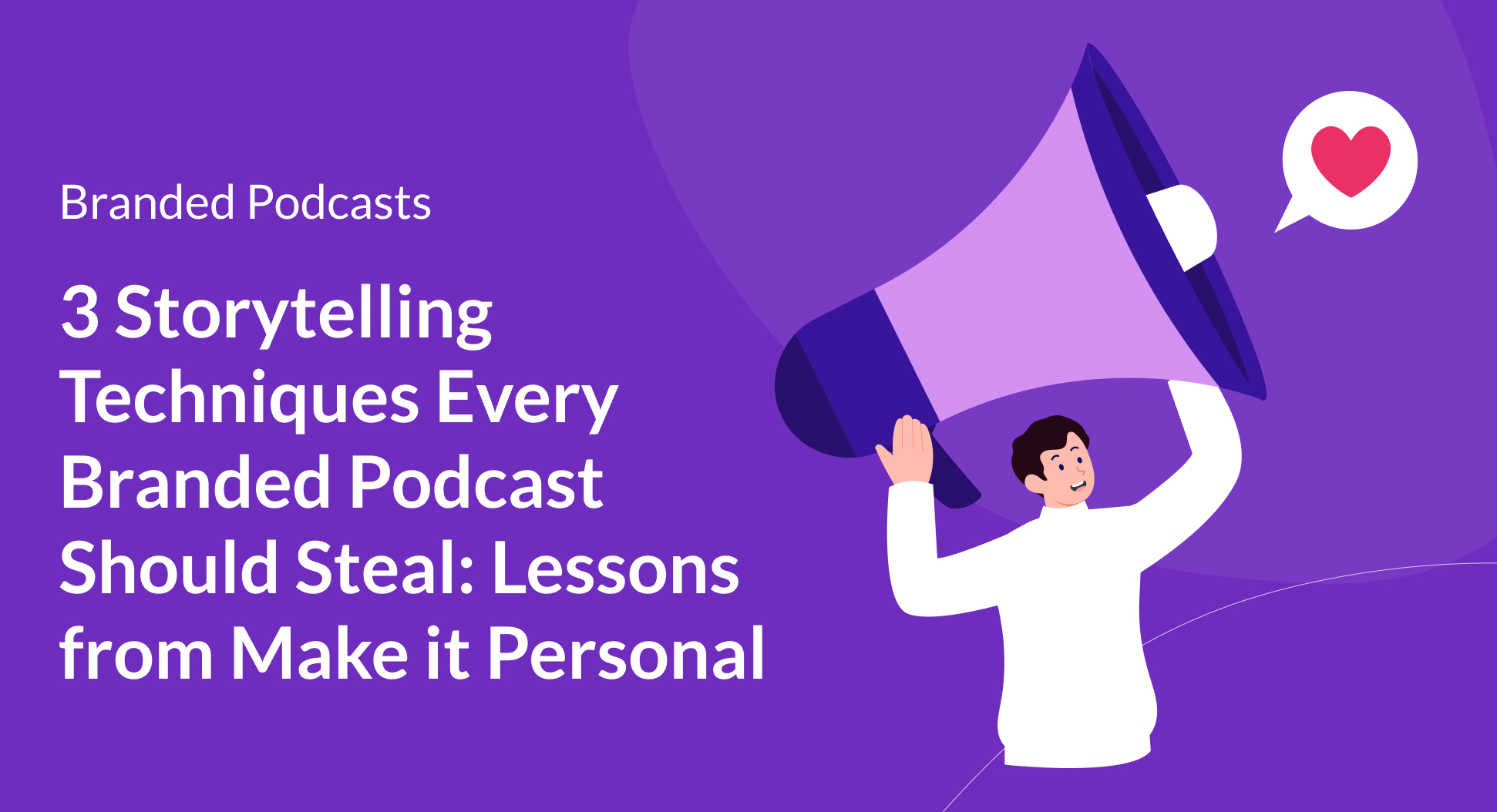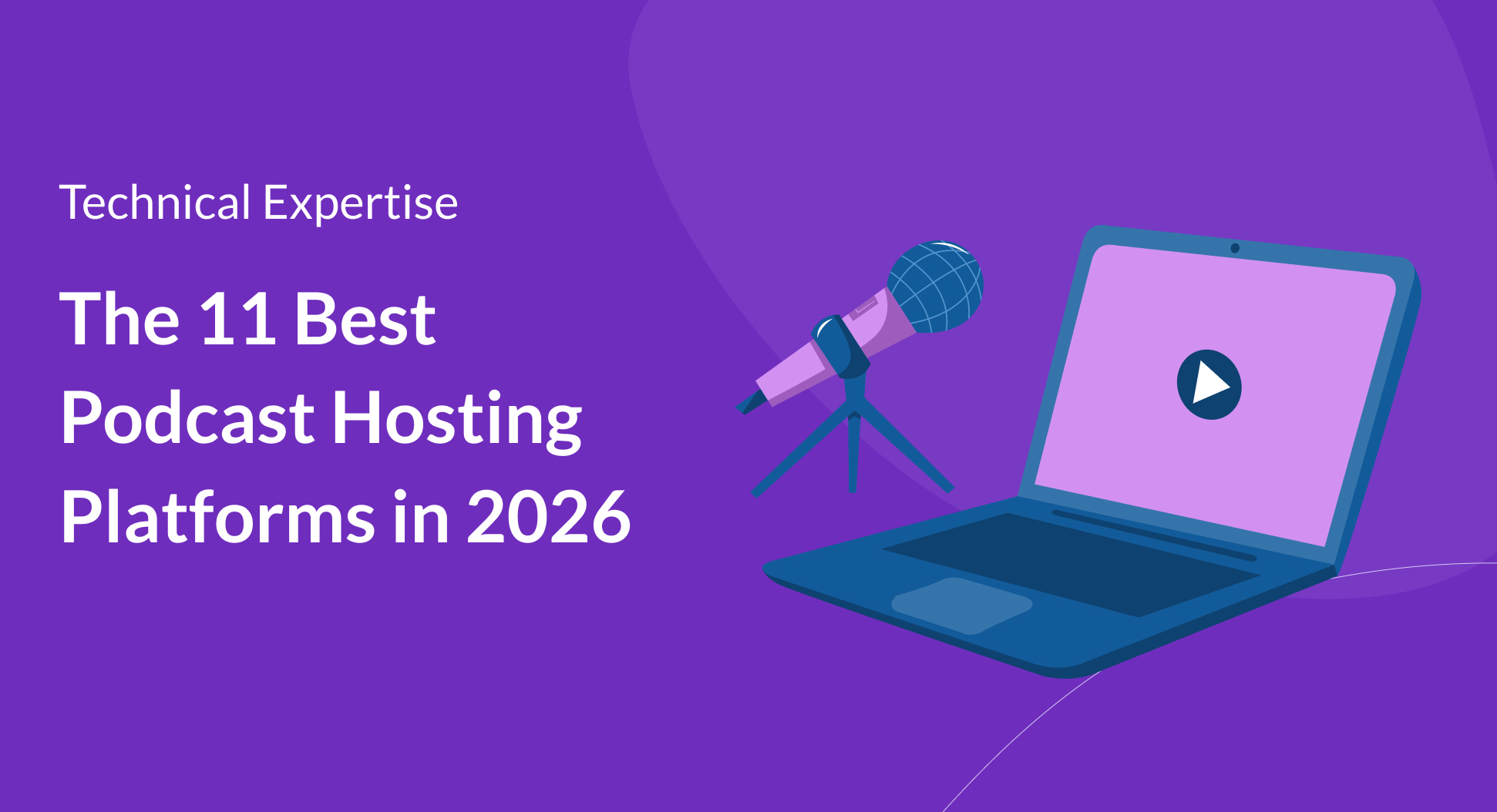Contents
If you're a brand or marketer investing in podcasting, you’ve probably asked (or been asked):
How do I actually measure whether the podcast is working?
After all, you're pouring time, effort, and budget into creating and promoting a branded podcast. But without a clear understanding of impact, it’s tough to prove value, scale what’s working, or justify the continued investment.
This is a question that we’re constantly getting from clients, and rest assured, it can be answered.
In this guide, we’ll walk through the most effective ways to measure podcast ROI, why it’s essential for brand and marketing leaders, and how third-party analytics tools can simplify the entire process.
What is podcast ROI?
Let's start by defining what "podcast ROI" even is.
So what is podcast ROI?
ROI is simply a way to measure the financial gain (or loss) you get from investing in a podcast, expressed as a percentage of this investment's cost. In the case of a podcast, you're investing your time, resources, and money, so of course, you want to know if you're getting a positive return on that investment.
But podcast ROI isn’t just about dollars in vs. dollars out. In fact, we encourage brands to change their mindsets on the perceived value of podcasts.
ROI from podcasts also encompasses brand awareness, audience trust, content repurposing, and thought leadership. Intangible yet impactful outcomes.
A branded podcast can offer significant value in the form of:
- Creating a deeper bond with your existing audience
- Increasing your discoverability, visibility, and reach
- Establishing your brand authority
- Driving leads and supporting the sales cycle
The challenge? Many of these benefits are difficult to measure using traditional marketing metrics, as you’ve likely experienced, which is why podcast-specific analytics are key.
Quill tip: Explore CoHost’s Podcast ROI Calculator to measure your own branded podcast’s ROI.
So let’s get into it:
How to measure your podcast ROI
There are several ways to measure the ROI of your podcast, and the best one for you will depend on your goals and the type of show you have.
Here are a few common methods to consider:
Measuring audience growth
One of the most important metrics for measuring the ROI of your podcast is your audience growth. This includes:
- Downloads
- Unique listeners
- Subscriber count
- Follows on platforms like Apple, Spotify, and YouTube
Subscribers, in particular, are highly engaged listeners who are likely to consume multiple episodes, increasing their potential value to advertisers or sponsors. If you're consistently seeing an increase in these metrics, it's a good sign that your podcast is resonating with your target audience and they are engaged with your content.
Quill tip: Look into your audience demographic data, such as the age, income, location, listener job roles, seniorities, industries, or social media habits. This determines if you’re reaching your target audience.
Measuring engagement
Another way to measure the ROI of your podcast is by looking at the level of engagement you're getting from listeners. This includes:
- Ratings & reviews on platforms like Apple or Spotify
- Listener feedback & shares
- Episode consumption rate
- Drop-off points and listening duration
These insights help you understand what’s resonating and what’s losing listener attention, so you can optimize content for retention and growth. You might be able to drive new audiences, but are they sticking around and resonating with your content? That’s what engagement measures.
Measuring revenue
Of course, one of the most tangible ways to measure the ROI of your podcast is by looking at the revenue it generates.
This can come from:
- Products or services sold
- Advertising
- Sponsorships
- Merchandise
Brands should also measure how podcasts contribute to pipeline generation or lead nurturing, especially when targeting B2B audiences. Even if the podcast hasn’t officially converted a customer, understanding the demand it generates is a clear link to podcast ROI.
Quill tip: Use B2B Analytics data to uncover which companies are listening to the podcast, along with their industries, job roles, and seniority.
Measuring brand awareness or impact
Finally, you can measure the ROI of your podcast by looking at the impact it's having on your brand. While harder to quantify, brand impact is critical.
This includes:
- Brand lift
- Increased visibility in your industry
- Thought leadership positioning
- Audience trust & relationship building
Many brands rely on downloads and reviews here, but survey data, listener testimonials, and podcast brand lift studies can paint a clearer picture.
Third-party podcast analytics tools
Let’s be real: tracking podcast ROI across platforms, apps, and internal systems is overwhelming.
More often than not, the metrics that you’re looking to track live on different applications, and sometimes you have to rely on your own calculations to obtain certain metrics (explore CoHost’s guide on podcast ROI calculations).
That’s why many marketing teams opt for a third-party podcast analytics platform.
These tools provide a centralized dashboard where you can access:
- Downloads & unique listeners (growth over time, episode comparisons, top vs. latest performing episode)
- Advanced audience demographics (age, income, location, hobbies, social habits)
- B2B Analytics (company data, job roles, industries)
- Consumption metrics (consumption rate, listen time)
- Marketing attribution via tracking links (measure how many clicks turn to downloads)
For example, CoHost allows you to see exactly where listeners come from, which marketing channels are converting best, and what content keeps them engaged.
Having all your podcast performance data in one place helps marketing teams:
- Prove ROI with confidence
- Optimize content & growth strategies
- Align with broader marketing KPIs
Why measure your podcast’s ROI
So, why does this all matter?
Because podcasting is no longer just a creative experiment, it’s a strategic marketing channel. And like any channel, it deserves real measurement.
It's about measuring the benefits you're getting from your investment in terms of awareness, brand uplift, relationships built, and then, of course, revenue. And while some of these benefits are tangible and easy to quantify, others are intangible and more difficult to measure.
Analyzing podcast ROI allows you to determine the effectiveness of your podcasting strategy and its impact on your overall goals. By measuring ROI, you can identify which aspects of your podcast are working well and make informed decisions about future episodes.
Equally, these valuable insights support your brand and podcast in a number of ways:
- Objective evaluation of success: Measuring ROI provides quantifiable data to determine if the podcast is meeting your company's goals.
- Budget allocation: Make informed decisions on where to allocate resources and can justify the investment in audio.
- Adaptation & improvement: Easily adapt podcast strategies based on what's working and what's not, leading to continuous improvement.
- Sponsorship & monetization: Attract potential sponsors or advertisers by demonstrating the value and reach of the podcast.
- Content strategy alignment: Determine if the podcast aligns with your overall content strategy and contributes effectively to your communication goals.
- Benchmarking & competitive analysis: Provide benchmarks to compare the performance of your branded podcast against competitors, industry standards, or your own performance YoY.
Regardless of the metrics you choose to use, the key is to be consistent and track your progress over time. This will help you understand the impact your podcast is having and make adjustments as needed to maximize your ROI.
Are you tracking your podcast’s ROI?
While tracking the ROI of your branded podcast can seem daunting at first, it doesn’t have to be.
By setting clear goals, using the right metrics, and leveraging podcast analytics tools like CoHost, you can build a data-driven podcast strategy that drives results and earns buy-in across your organization.
Want to stay up to date on the latest news, trends, and tips on branded podcasts? Sign up for our bi-weekly newsletter, The Branded Podcaster.






.png)

.png)

.png)




.png)
.png)
.png)
.png)